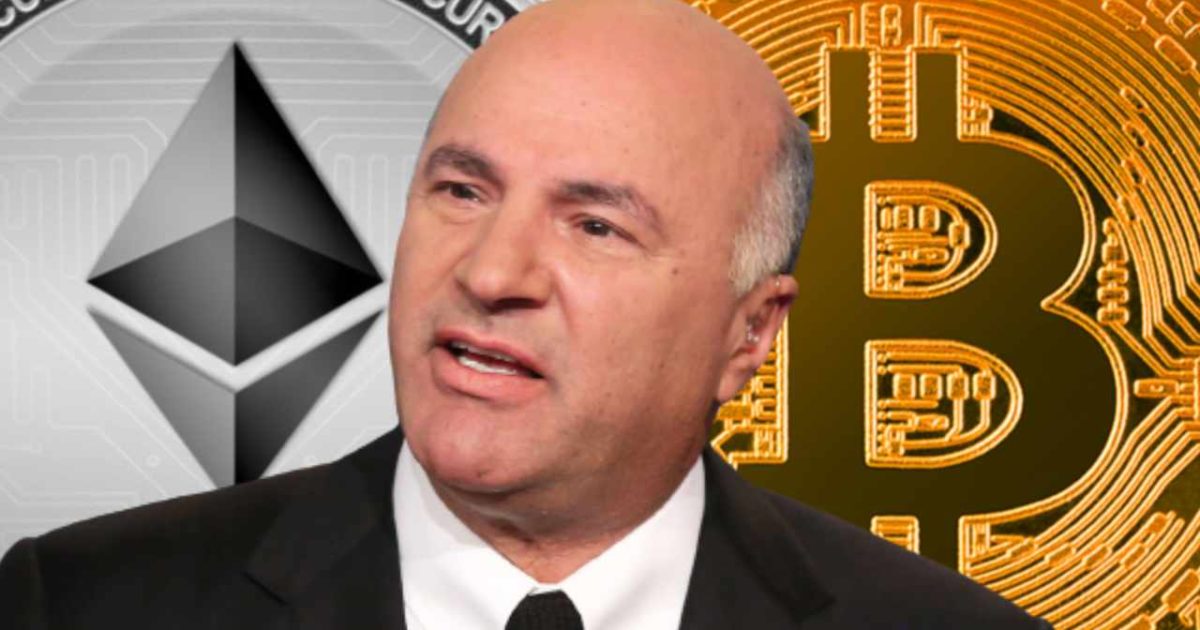Shark Tank star Kevin O’Leary’s Twitter account was hacked Thursday and used to promote a bitcoin and ethereum giveaway scam. The scammers claimed that Mr. Wonderful is giving away 5,000 bitcoin and 15,000 ether, and anyone can participate.
Kevin O’Leary’s ‘Fake’ Bitcoin and Ether Giveaways
The official Twitter account for Shark Tank star Kevin O’Leary, aka Mr. Wonderful, started promoting bitcoin and ethereum giveaways Thursday morning. The account tweeted claiming that O’Leary has made a lot of money from crypto over the last few years and he has decided to give away 5,000 bitcoin and 15,000 ether. The tweet also provides a link for anyone to join the cryptocurrency giveaway scam event.
The O’Leary Twitter account further claimed that it is not hacked and the giveaways are not a scam. It also falsely claimed that Mr. Wonderful said on CNBC last night that he will away some cryptocurrencies for real.
The link provided in the first tweet takes investors to a website claiming to be the official site for O’Leary’s bitcoin and ether giveaway. “Everyone can participate, including those in the United States,” the website details. Two more links are provided: one is to participate in the BTC giveaway while the other is to participate in the ETH giveaway.
The fake giveaway posts were removed by Twitter a few hours after they were posted.
Crypto Giveaway Scams Widespread on Social Media
Cryptocurrency giveaway scams are widespread across various social media platforms, including Twitter, Youtube, Facebook, and Instagram.
Scammers often hack the accounts of famous people, politicians, celebrities, and companies and use them to promote their fake giveaways. Elon Musk and his companies Tesla and Spacex are often featured in these scams.
In the O’Leary giveaway, the scammer evidently reused the same website they created for fake Tesla and Elon Musk giveaways. Besides comments on O’Leary’s giveaway site thanking Musk for sending them some BTC, both the bitcoin and ether giveaway pages for the Shark Tank star have the Tesla logo on top and were hosted on a website with the name Tesla in the URL.
In July 2020, a large number of Twitter accounts were hacked to promote a bitcoin giveaway, including those belonging to Apple, Google, Barack Obama, Bill Gates, Floyd Mayweather, Jeff Bezos, Joe Biden, Kanye West, Mike Bloomberg, Mr. Beast, Uber, and Warren Buffett. More recently, Pakistani politician Imran Khan‘s Instagram account was used to promote a giveaway scam featuring Musk, and the British Army‘s official Youtube and Twitter accounts were compromised in July to promote a bitcoin giveaway.
O’Leary was recently slammed by the crypto community for defending former FTX CEO Sam Bankman-Fried. He was paid about $15 million to become the crypto exchange’s spokesperson. Following the FTX meltdown, O’Leary said Bankman-Fried is a brilliant crypto trader and he will back him again if he has another venture.
What do you think about cryptocurrency giveaway scams? Let us know in the comments section below.
Image Credits: Shutterstock, Pixabay, Wiki Commons
Disclaimer: This article is for informational purposes only. It is not a direct offer or solicitation of an offer to buy or sell, or a recommendation or endorsement of any products, services, or companies. Bitcoin.com does not provide investment, tax, legal, or accounting advice. Neither the company nor the author is responsible, directly or indirectly, for any damage or loss caused or alleged to be caused by or in connection with the use of or reliance on any content, goods or services mentioned in this article.






